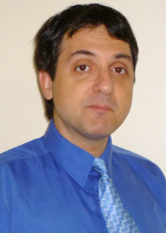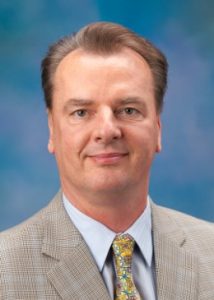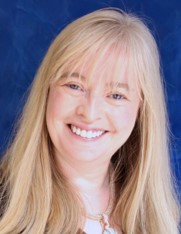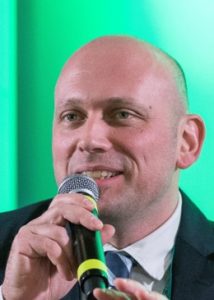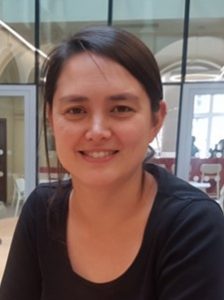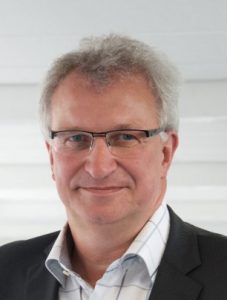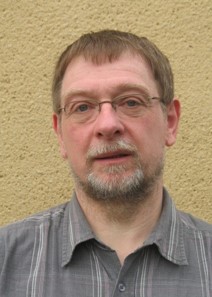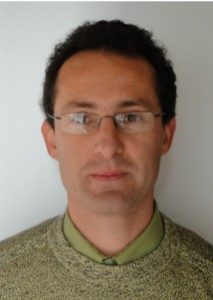The Royal Academies for Science and the Arts of Belgium, Brussels.
On June 21st, the Belgian Association of Meat Science and Technology (BAMST) and the International Dairy Federation (IDF) brought together various experts to discuss “The role of ruminants in sustainable diets” in Brussels, Belgium. During this scientific outreach, high-level international speakers reported on the latest science to correctly assess the nutritional and environmental implications of ruminant livestock.
This event attracted an international audience of stakeholders and organizations that are active in the livestock sector, food and environmental policies or related activities.
For further information, please contact María Sánchez Mainar.
Chairs
- Prof. Frédéric Leroy (BAMST President)
- Dr. Judith Bryans (IDF President)
VIDEO – INTRODUCTION BY PROF. DR FREDERIC LEROY
Speakers
PROF. ANDREW MENTE
Population Health Research Institute, CA
Recent findings from the Prospective Urban Rural Epidemiology (PURE) study:
the case of saturated fat, dairy and meat
Dr. Mente is currently working in the Population Urban and Rural Epidemiological (PURE) research consortium, and is interested in the role of essential minerals and dietary fatty acids in cardiovascular diseases in populations around the world. In our most recent paper published in The Lancet, we found that higher consumption of dairy products (particularly whole fat dairy from milk, yogurt and cheese) is associated with a lower risk of mortality and major cardiovascular disease.
- Watch Video on “The case of saturated fat, dairy, meat”
PROF. FRANK MITLOEHNER
University of California, Davis, US
Facts and fiction around livestock and its environmental impact
Specialized in measurements and mitigation of greenhouse gases, volatile organic compounds, ammonia, hydrogen sulphide, and particulate matter and the study of their effects on human- and animal health and welfare. In short, his lab investigates the nexus of agricultural productivity and environmental sustainability. Over the last year, in particular, he has been a very influential protagonist in the overall sustainability debate, having actively countered disinformation in related to livestock in both the academic and public sphere, as well as on policy level.
- Watch video on “Facts and fiction around livestock and its environmental impact”
DR. ANNE MOTTET
Food and Agriculture Organization of the United Nations
Transforming the global livestock sector: how the SDGs can help
She holds a PhD in agronomy and an MSc in agricultural economics and has 17 years of experience in the livestock sector. Anne does support to policy makers and research in Livestock Production Systems, Environmental Science, Climate Change, Animal Science and Agronomy. She supports the sustainable development of the livestock sector in different regions of the world.
- Watch video on “Transforming the global livestock sector: how the SDGs can help”
DR. JUDITH BRYANS
IDF President
Communicating sustainability for the dairy sector
President of the International Dairy Federation. She is also the Chief Executive of the trade association Dairy UK. She is a Board member of the European Dairy Association (EDA) and is Chair of the EDA’s Scientific Advisory Board on Nutrition & Health. Judith holds a PhD from King’s College London and is a Registered Nutritionist. The International Dairy Federation is the leading source of scientific and technical expertise for all stakeholders of the dairy chain. IDF engages all stakeholders in productive activities and research projects to further current knowledge and science on a wide range of issues. It represents countries responsible for approximately 85% of the global milk supply. See her last blog post.
- Watch video on “Communicating sustainability for the dairy sector”
ANDREA BERTAGLIO
Environmental journalist, IT
Communicating the sustainability of meat and cured meats in Italy:
why the Italian animal production can be considered a best practice
Andrea Bertaglio is a freelance environmental journalist, social media strategist, content manager and digital communication consultant specialized in sustainability and environmental topics. He writes for the Italian daily La Stampa, among other publications. He collaborates with The Sustainable Meat Project, as Web and social media coordinator. In 2007 he worked at the UNEP Centre on Sustainable Consumption and Production in Germany. He recently wrote “In defense of meat”, a book in which he describes his personal and journalistic experience in this field and gives to the readers information mostly unknown to the public.
DR. MICHELLE CAIN
Oxford Martin, UK
Why methane should be treated differently compared to long-lived greenhouse gases
Michelle’s core expertise is in air pollution, greenhouse gases and climate science. Her focus as a postdoctoral researcher was on the greenhouse gas methane and its sources in the UK and in the Arctic. She was the coordinator for the Cambridge Centre for Climate Science, a network of climate scientists in departments across the university and the British Antarctic Survey, responsible for a programme of activity to build the climate science community. Michelle also spent 18 months as a Natural Environment Research Council policy placement fellow at Defra (Department for environment, food and rural affairs), specialising in air quality.
PROF. MARTIN SCHOLTEN
Wageningen University & Research, NL
Circularity: livestock is essential for food and resource security
and climate change reduction
Director of Animal Sciences Wageningen University & Research (WUR), he holds a PhD in ecotoxicology and his research experience covers marine research, biology, and food production. Martin is the former president of the European public-private livestock innovation platform Animal Task Force (ATF); co-chairman of the Global Research Alliance (GRA) on Agricultural Greenhouse Gases; chairman of the Dutch Dairy Campus Board and chairman of the Netherlands Centre for One Health. He has introduced the principles of “Feeding the World within the Carrying Capacity of Planet Earth”, “Livestock Farming with Care”, “A circular food production in a biobased society” and “Disruptive Technologies in responsible innovation in Agribusiness”.
DR. JEAN-LOUIS PEYRAUD
Institut National de la Recherche Agronomique, FR
Joint talk
Agricultural scientific director of INRA, where he is in charge of research in animal production. He is an agricultural engineer and doctor-engineer of ENSA Rennes. His research areas are feeding of dairy cows, the production of milk on the grass and the relationship between dairy farming and the environment. He has gained international fame, particularly through his work on grazing. Today, he is President of the Animal Task Force, a PPP that promotes a sustainable livestock sector in Europe. The Animal Task Force supports interdisciplinary research and innovation, fosters the sustainability of the wide diversity of European production systems to improve the resilience of our food systems, and promotes holistic agricultural approaches to link more closely livestock and plants.
- Watch video on “Circularity: livestock is essential for food and resource security
and climate change reduction”
DR. NICO PEIREN
Research Institute for Agriculture, Fisheries and Food, BE
Methane reduction strategies for cattle
He is working on the department of Cattle Husbandry at the Institute for Agricultural and Fisheries Research in Belgium. His research expertise covers the impact of animal husbandry on the environment and the climate through an integrated problem approach. His research monitors methane and CO2 emissions at animal (gas exchange chambers) and herd level (GreenFeed), both in experimental conditions and at practice farms, thereby identifying intervention strategies.
- Watch video on “Methane reduction strategies for cattle”





